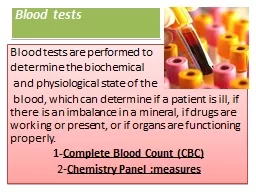PPT-Key Stage 1 Tests
Author : jane-oiler | Published Date : 2017-06-26
What they are Why they happen What well be doing What you can do to help The Tests At the end of year 2 children will take assessments in Reading English grammar
Presentation Embed Code
Download Presentation
Download Presentation The PPT/PDF document "Key Stage 1 Tests" is the property of its rightful owner. Permission is granted to download and print the materials on this website for personal, non-commercial use only, and to display it on your personal computer provided you do not modify the materials and that you retain all copyright notices contained in the materials. By downloading content from our website, you accept the terms of this agreement.
Key Stage 1 Tests: Transcript
Download Rules Of Document
"Key Stage 1 Tests"The content belongs to its owner. You may download and print it for personal use, without modification, and keep all copyright notices. By downloading, you agree to these terms.
Related Documents











![[Project Short Name] Stage Gate Approval Summary](https://thumbs.docslides.com/740415/project-short-name-stage-gate-approval-summary.jpg)


